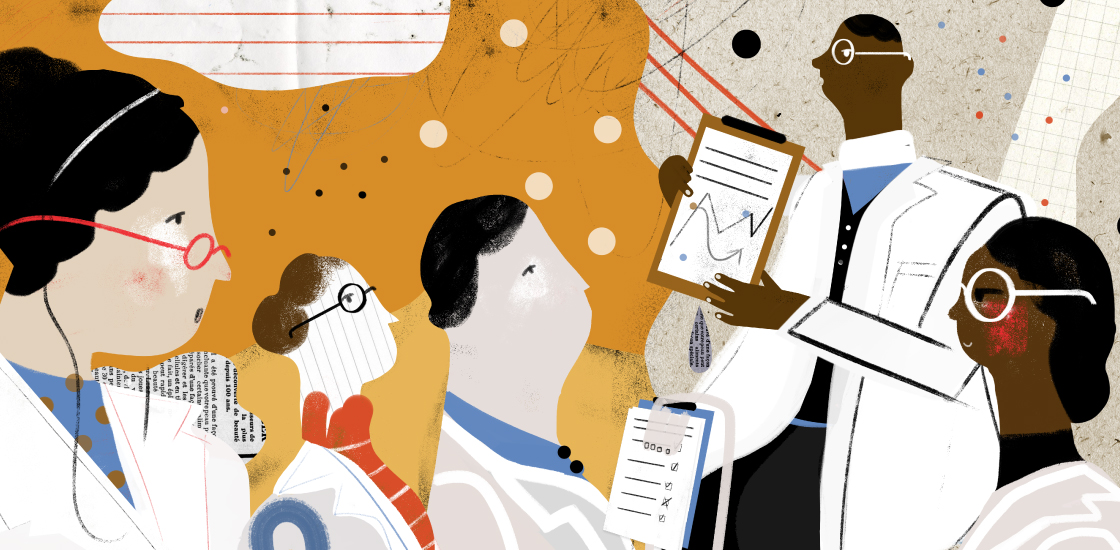Black autistic children are diagnosed later than white children and are often misdiagnosed with other conditions first1. Systemic racism contributes to many inequalities that lead to Black-white disparities in autism diagnosis and outcomes2. Many Black caregivers report that their initial concerns were dismissed, and that they had to push doctors to assess their children for autism.
Even after children receive an accurate diagnosis, providers’ harmful racial stereotypes may interfere with Black autistic people getting appropriate care. And because Black children and adults are often underrepresented in autism research, little is known about the unique needs of the Black autistic community.
One way to address racial disparities in autism research and treatment is to increase the number of Black autism researchers and clinicians. Research on other conditions has shown that having Black healthcare providers helps to improve health outcomes for Black people, because it leads to greater trust between doctors and their patients3. Black caregivers also express frustration that white researchers may not relate to their experiences, so increasing diversity in research teams could make Black participants feel more comfortable participating in studies.
In a recent editorial, we offered guidance to help individuals and organizations train and support Black autism researchers and practitioners4. These recommendations focus on ways to recruit new professionals into the field as well as ways to improve the professional and social experiences of those who are already in the field.
Supporting diversity:
We should start by recruiting more Black trainees at the earliest career stages. We need to offset systemic disadvantages that Black students and trainees commonly face. For example, racial disparities in income create an additional financial burden for many Black students and make it difficult for them to accept unpaid research positions.
Institutions can make these opportunities more accessible by increasing the number of funded research positions and fellowships for students of color. Likewise, applicants should be evaluated based on their ideas and abilities, instead of on elitist factors such as the reputation of the college they attended. Doing so will help support students who may have attended less prestigious institutions due to social barriers.
We should provide resources to help senior-level researchers remain in academia and obtain tenured positions. Other researchers and clinicians can do their part by forging connections and engaging in collaborations with Black researchers, such as including them as co-lead investigators on grants. This will enable Black scientists to better establish themselves in the field and give them opportunities to publish, which can increase their chances of gaining tenure.
Academic institutions can support Black researchers and clinicians by actively recruiting Black people for leadership positions. This not only grants Black people a greater role in decision-making processes but also creates mentorship opportunities for early-career Black researchers, who often experience difficulties finding mentors who can relate to their experiences of racism or discrimination.
Inclusive environments:
Although increasing the number and visibility of Black researchers and clinicians is an important goal, this alone is not sufficient for improving the experiences of Black people in autism research. We must also focus on ways to build inclusive environments that celebrate and value diverse experiences and actively combat injustice.
Perhaps the most important step that everyone can take is to listen respectfully to the voices of Black autistic and non-autistic people. If a Black colleague or mentee voices concerns about racism or injustice, do not dismiss their concerns or respond defensively, but instead try to understand their feelings and experiences. By listening empathetically to people who are different from you, you can learn to recognize your own biases and work to change them. And if you are a white person who sees racial injustice in your institution, call it out yourself. Don’t leave it to the Black people in the room to shoulder that burden alone.
Researchers can take this a step further by forming advisory committees of Black autistic and non-autistic community members, who can help ensure that studies are respectful of cultural differences and offer suggestions for ways to make research more inclusive. Because these individuals are devoting their time and energy to help, they should be compensated fairly for their contributions.
Professional and research organizations can also help to build inclusive environments by developing committees and events focused exclusively on researchers and clinicians from underrepresented racial ethnic groups. These committees give Black members the power to identify and address issues of diversity within an organization, helping to generate meaningful change.
Although these recommendations are far from exhaustive, we hope they will serve as a helpful starting point and open the door for future conversations on race and autism.
Desiree Jones is a third–year Ph.D. student studying developmental psychology at the University of Texas at Dallas. David Mandell is professor of psychiatry and pediatrics at the University of Pennsylvania in Philadelphia and director of the Penn Center for Mental Health.






